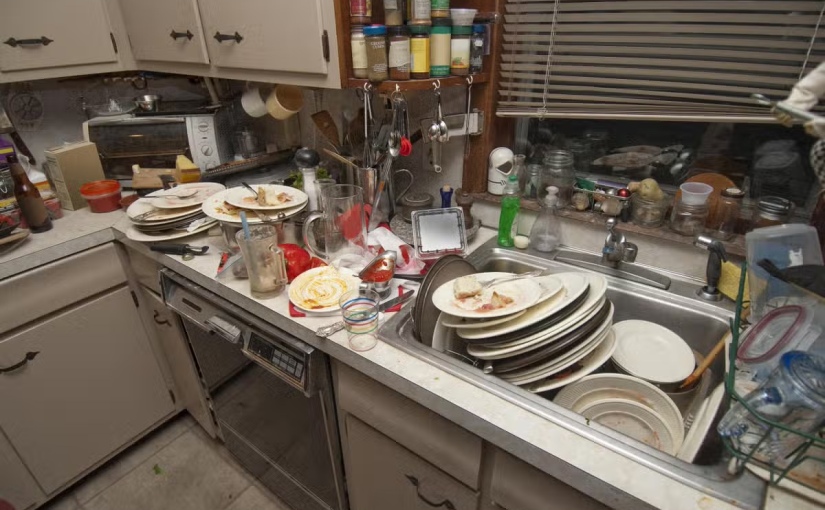Tuesday, April 30, 2024
Over the past couple of months I’ve interacted meaningfully with different groups of friends: friends I’ve known for decades, friendly neighbors, fellow rowing enthusiasts, and brand new acquaintances. Almost invariably, our conversations digress to politics. It is an election year, after all, and we live a few miles from the White House.
“We live in a bubble here in the DC area,” they say. “Away from the big cities, Trump is still very popular.” National politics is our local politics, and we all have opinions.
“Democrats are losing the culture wars,” they say. “By focusing on LGBTQ-plus issues, they’re losing mainstream Americans.”
“So you don’t support LGBTQ rights?” I’ll challenge.
“Of course I support the rights of trans and LGBTQ people!” they huff indignantly. “But I draw the line at all the pronoun stuff.”
The first time it happened, I looked on in disbelief. My liberal, progressive DC friends can not handle the reality of LGBTQ+ rights, no matter what they profess.
Let me tell you up front that we are all in our late 50’s or 60’s. Older adults. Many of my friends are retired. I still work full time teaching high school.
“They is a plural pronoun; it should not be used as a singular.”
“Right! And putting the pronoun in the signature is so ridiculous!” they say. “Why do we need that? It’s usually so obvious if you look at the name!”
I felt this way seven or eight years ago. As an English teacher, I struggled mightily with this issue – especially with English Language Learners, who need to learn the rules of grammar.
Then in 2016, my first trans student began their transition right in front of me. She became he. He became they. I kept messing up their new name and using the dead name, each time apologizing for the brain fart.
That student’s name in my online gradebook was a very girly name. This was before the MCPS policy allowed students to determine the name that appeared on teachers’ rosters, before we asked for their pronouns in the first week of school, before my direct supervisor signed her name Mx, before one of the first LGBTQ studies classes in the district was held in my shared classroom and I saw first-hand what it meant to be a student from a traditionally-marginalized background.
The face that stared at me with bright blue eyes was a girl’s face, now with short hair and a crocheted rainbow hat. The pudgy body slumped in giant rainbow t-shirts. Combat boots. Since then, I think I’ve had a trans kid in my classes every semester.
“But it’s so disrespectful of their identity to use the wrong pronoun! It’s like purposefully mispronouncing someone’s name because you can’t be bothered to learn it!” I tried the direct approach with my friends. “Or using a detested nickname instead of their real name.”
In MCPS, students are allowed to self-identify their gender as male, female, or X-Nonbinary. They are allowed to use bathrooms and locker rooms “in alignment with their consistently asserted gender identity.” I support this. My friends do, too. Or at least they say they do.
So why do my older DC friends draw the line at the pronoun thing?
Back in the early 70’s our parents balked at calling a woman Ms. instead of Miss or Mrs. We argued that it was nobody’s business – especially when first meeting a young woman – if she was married or single. Gradually this honorific gained widespread use, and now it’s a normal form of address.
Maybe that’s the argument I need to use with my friends. However, I do not feel qualified to take on this issue. I’m not LGBTQ; I do not have any immediate family members who identify this way, but I am an ally. I have a unique perspective that I feel compelled to share.
Now MCPS promotes inclusive LGBTQ curriculum, staff training, and Pride Town Halls. I’m proud to be part of a progressive school district that is at the forefront of affirming the rights of gender non-conforming students. Even using that terminology is something I did not do eight years ago.
According to a recent Gallup Poll, only 7.1% of Americans identify as LGBTQ+ but among Gen Z kids, it increases to one out of five. My students took a poll and thought it was almost 30 percent! I think our perception of this issue is strongly influenced by who we surround ourselves with. I am privileged to work with young people every day and can sometimes see the world a little bit through their eyes.
This is my chance to influence my Baby Boomer peeps. “Be kind,” an older colleague reminded me when I presented my case to her. “They don’t work with teens every day, and they probably just don’t know how important it is.” I’ll go with that.
This blog is my first stab at addressing the often-confusing, ever-changing language around gender identity. I hope I haven’t messed it all up.
(she/ her)

















